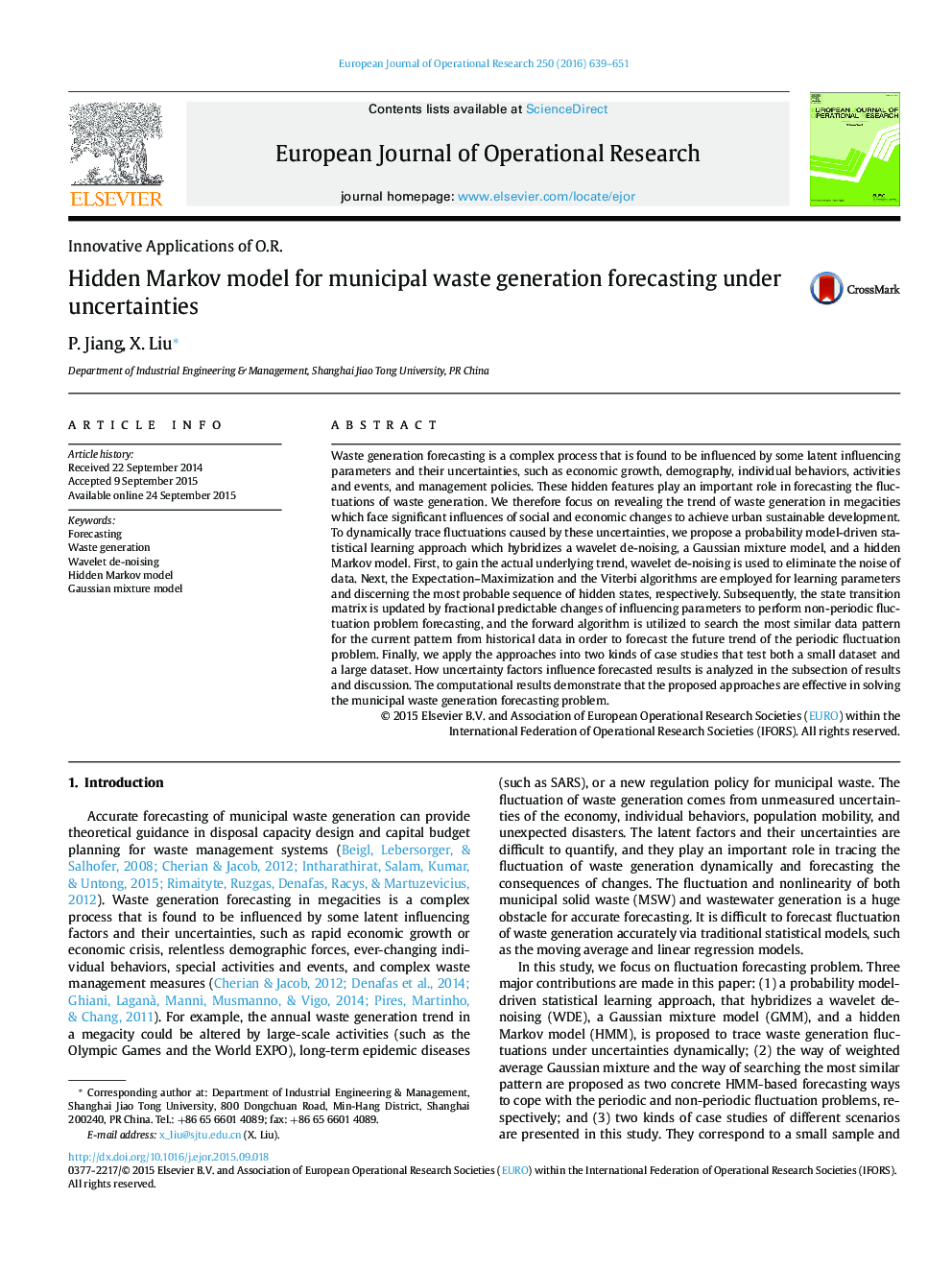| کد مقاله | کد نشریه | سال انتشار | مقاله انگلیسی | نسخه تمام متن |
|---|---|---|---|---|
| 479330 | 1445986 | 2016 | 13 صفحه PDF | دانلود رایگان |
• A model-driven learning method is proposed to trace fluctuations dynamically.
• The fluctuation forecasting under uncertainties is made possible using the HMM.
• Case studies of different scenarios are presented to show the validity of the HMM.
• Two forecasting formulas are proposed to cope with two scenarios separately.
Waste generation forecasting is a complex process that is found to be influenced by some latent influencing parameters and their uncertainties, such as economic growth, demography, individual behaviors, activities and events, and management policies. These hidden features play an important role in forecasting the fluctuations of waste generation. We therefore focus on revealing the trend of waste generation in megacities which face significant influences of social and economic changes to achieve urban sustainable development. To dynamically trace fluctuations caused by these uncertainties, we propose a probability model-driven statistical learning approach which hybridizes a wavelet de-noising, a Gaussian mixture model, and a hidden Markov model. First, to gain the actual underlying trend, wavelet de-noising is used to eliminate the noise of data. Next, the Expectation–Maximization and the Viterbi algorithms are employed for learning parameters and discerning the most probable sequence of hidden states, respectively. Subsequently, the state transition matrix is updated by fractional predictable changes of influencing parameters to perform non-periodic fluctuation problem forecasting, and the forward algorithm is utilized to search the most similar data pattern for the current pattern from historical data in order to forecast the future trend of the periodic fluctuation problem. Finally, we apply the approaches into two kinds of case studies that test both a small dataset and a large dataset. How uncertainty factors influence forecasted results is analyzed in the subsection of results and discussion. The computational results demonstrate that the proposed approaches are effective in solving the municipal waste generation forecasting problem.
Journal: European Journal of Operational Research - Volume 250, Issue 2, 16 April 2016, Pages 639–651
